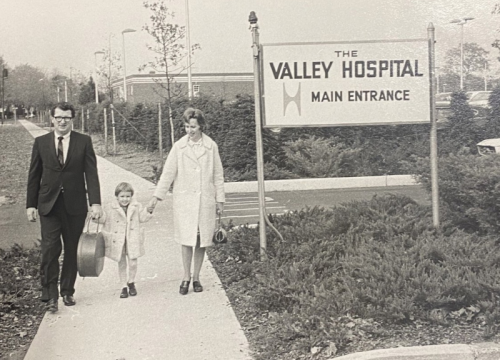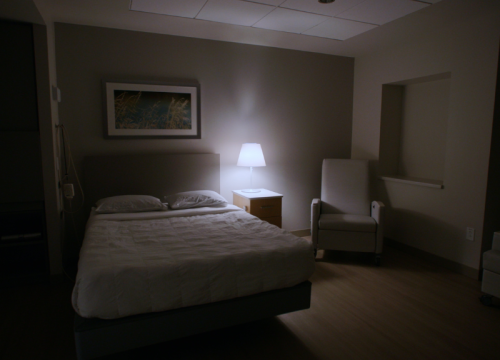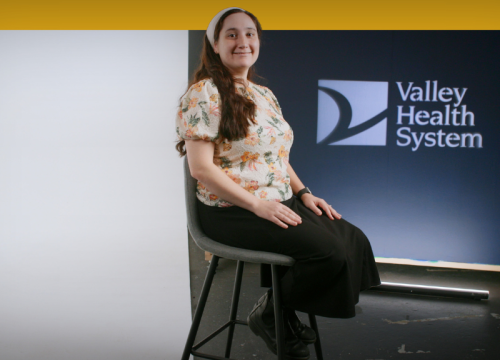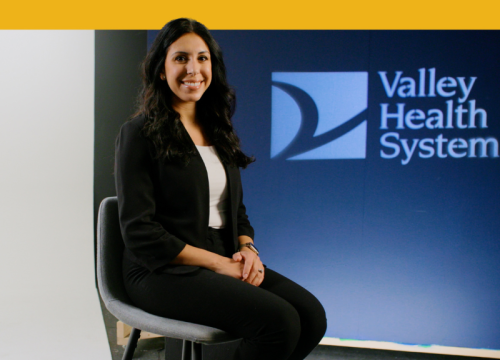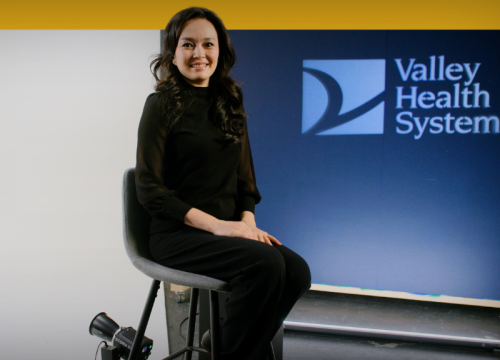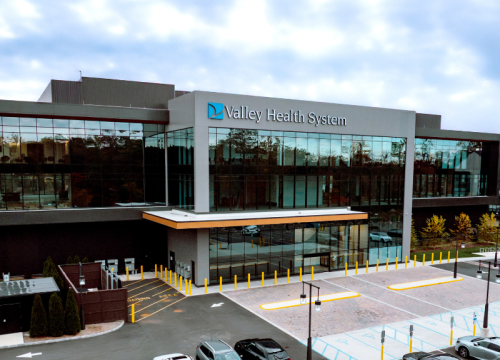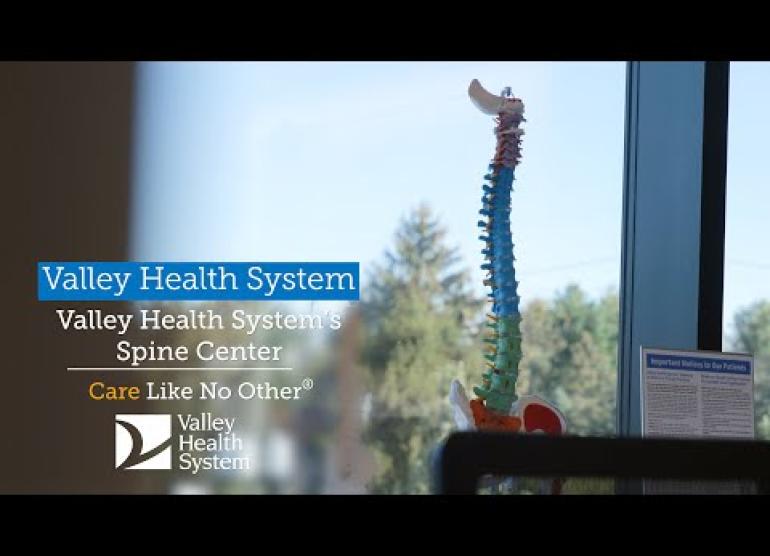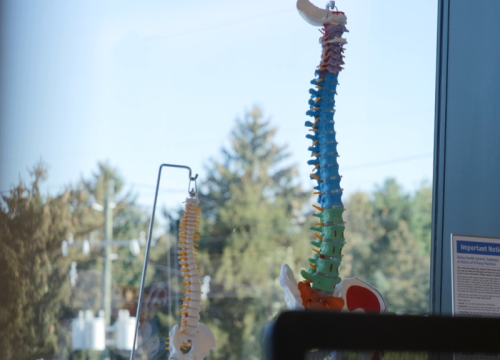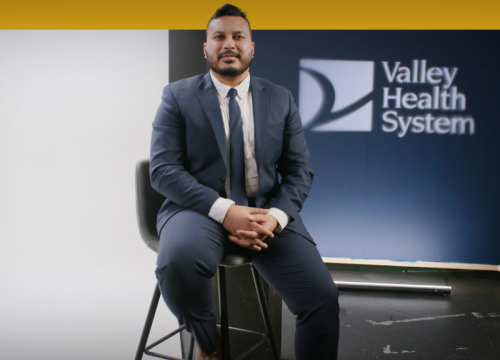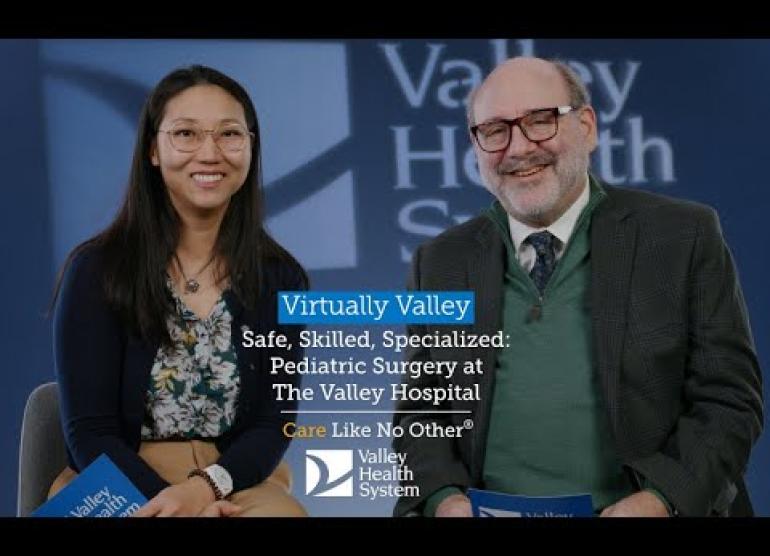Pituitary tumors are usually noncancerous (benign) growths on your pituitary gland in the lower part of your brain. If you have a pituitary tumor, your treatment may involve surgery.
In the past, surgery to remove pituitary tumors involved removing part of the skull (craniotomy). But new technology and techniques have made pituitary tumor surgery much less invasive.
At Valley, our neurosurgeons specialize in minimally invasive endoscopic endonasal surgery to remove pituitary tumors through the nose. We also use minimally invasive endoscopic endonasal surgery (sometimes called transsphenoidal hypophysectomy) to remove other types of skull base tumors, cysts, as well as to fix problems such as cerebrospinal fluid leaks.
This endoscopic approach to treat pituitary tumors can be equal to or more effective than open surgery, with fewer side effects. Endoscopic endonasal surgery is minimally invasive, and maximally effective.
Rupa Juthani, MD, is the Director of Endoscopic Skull Base Surgery at The Valley Hospital. Watch as Dr. Juthani discusses treatments for pituitary tumors.
Am I a Candidate for Pituitary Tumor Surgery?
The team at Valley specializes in multi-disciplinary approaches to skull base tumors, such as pituitary tumors. This team includes highly trained specialists in neurosurgery, ENT surgery, radiation oncology, endocrinology, and ophthalmology.
Your Valley neurosurgeon may suggest surgery to remove your pituitary tumor, while preserving your normal pituitary gland, based on:
- The size of your pituitary tumor
- If your pituitary tumor produces hormones (called a functioning pituitary tumor)
- Your symptoms, such as vision loss, headaches, infertility or low sex drive
However, not all benign pituitary tumors (pituitary adenomas) require surgery. After carefully reviewing your case, we may recommend watchful waiting where we closely monitor your pituitary tumor over time.
Your treatment may also include:
- Medication and hormone replacement therapy
- Radiation therapy that uses high-energy radiation to destroy pituitary tumors
- Gamma Knife radiosurgery, a type of stereotactic radiosurgery that delivers very precise radiation to your pituitary tumor
Your neurosurgeon will coordinate your care with your endocrinologist, radiation therapist and other specialists at Valley.
Benefits of Minimally Invasive Pituitary Tumor Surgery
At Valley, our neurosurgeons treat most pituitary tumors with endoscopic endonasal surgery. During this minimally invasive surgery, the ENT and neurosurgeons work together to use your nasal passage to access the pituitary gland, while keeping your nasal tissue safe. They then use a high definition camera to gain a panoramic view of your skull base, and insert specialized instruments through your nose to remove your pituitary tumor.
Compared with traditional brain surgery that uses larger incisions, endoscopic endonasal surgery for pituitary tumors has many benefits, including in most cases:
- Less pain and bleeding
- Fewer complications like infection after surgery
- No visible scars
- Less time in the hospital (two days compared with up to five days with traditional surgery)
- Faster recovery
- Increased tumor removal, while maximizing preservation of normal pituitary function
This surgery can be done even if you have had prior surgery, including prior transnasal surgery. However, your specialized team will review each case to ensure you are a candidate for endoscopic endonasal surgery.
What to Expect: Endoscopic Endonasal Surgery
At Valley, our goal is to make sure you know exactly what to expect at every step of your treatment. Your care team will be there to answer all your questions and guide you through your endoscopic endonasal surgery.
Before Your Pituitary Tumor Surgery
Here’s what you can expect before your pituitary tumor surgery:
- Tell your care team about all medicines you take, including over-the-counter medicines, herbs and supplements. They may ask you to stop taking them, but do not stop any medicines unless they tell you to do so.
- If you use nicotine or tobacco, you’ll need to stop two weeks before surgery.
- Do not eat or drink anything after midnight the day before the procedure.
- Arrange for someone to drive you to the hospital on the day of your procedure. You’ll need someone to drive you home two to three days after the procedure.
During Your Pituitary Tumor Surgery
Here’s what you can expect during endoscopic endonasal surgery:
- A nurse will start an intravenous (IV) line with medication to help you relax.
- Your team will include your neurosurgeon, otolaryngologist (ear, nose and throat surgeon), anesthesiologist and other experts. They will perform your surgery in our specialized operating room, which has computer guidance systems and 3D imaging for brain surgery.
- Your anesthesiologist will give you general anesthesia through the IV, so you are asleep during the procedure.
- Your surgeons will guide a thin tube (endoscope) through your nose and sinuses. Using specialized brain-mapping and surgical tools, they will locate and remove your tumor. They may remove your entire pituitary gland.
- The minimally invasive surgery takes three to four hours, although your surgery may be shorter or longer.
Recovery After Your Pituitary Tumor Surgery
Here’s what you can expect after your endoscopic endonasal surgery:
- You’ll recover in Valley’s neuroscience intensive care unit, staffed by doctors and nurses who specialize in caring for people who have had brain surgery. They’ll check you for signs of bleeding and help manage your pain, which is typically minimal
- You most likely will not have any removable nasal packing or dressing, and you may not have any external signs of having had surgery
- As soon as you’re able, we’ll help you get out of bed and move around your room. Moving helps speed your recovery.
- You’ll have an MRI to gain a new baseline after surgery if you did not have an MRI during surgery.
- Most patients who have endoscopic endonasal surgery can go home two to three daus after surgery.
- You’ll see your neurosurgeon for a follow-up appointment about two weeks after surgery.
- During your recovery, you may feel sinus pressure and get headaches. Over-the-counter acetaminophen and nasal spray can help with comfort.
- Avoid lifting and strenuous activity for a few weeks. Don’t drive or fly until your neurosurgeon says it’s OK.
- You may lose your ability to smell for a few weeks after surgery. Your sense of smell will improve as you heal.
Call your neurosurgeon if you have:
- Redness, itching or swelling around your nose
- Nosebleeds that don’t stop
- Fever or chills
- Pain that doesn’t go away with medication
- Shortness of breath
- Loss of vision or blurry vision
Why Choose Valley for Pituitary Tumor Surgery
- Minimally invasive pituitary tumor surgery, close to home: Our neurosurgeons have the advanced training and years of experience performing endoscopic skull base surgery. This means you don’t need to travel into the city to get the most sophisticated brain surgery. Valley offers this expertise right here in your community.
- State-of-the-art brain mapping: Valley neurosurgeons use high-tech, 3D brain-mapping systems that guide them to the exact location of your pituitary tumor. This level of precision helps improve accuracy and effectiveness during complex brain surgeries like endoscopic endonasal surgery.
- Dedicated Neuro ICU for brain surgery patients: If you have pituitary tumor surgery at Valley, you’ll recover in our dedicated neuroscience intensive care unit (ICU). Our neuro ICU is staffed by doctors and nurses who specialize in caring for patients after brain surgery. This level of expertise allows them to address your specific needs as quickly and seamlessly as possible.
- Coordinated care from your neurosurgeon: Your neurosurgeon will work with you to understand your needs, goals and concerns. Then, they will coordinate your care with other specialists at Valley, including your endocrinologist, radiation therapist and other experts. For instance, if your pituitary tumor has caused vision loss, we’ll work with ophthalmologists at Valley on a treatment plan.
- Support before, during and after surgery: We understand that having pituitary surgery can be frightening. Our entire team strives to help you feel prepared before surgery, so you know what to expect. We’ll keep you informed during every step of the process, ensuring that you are involved in all aspects of your care.


